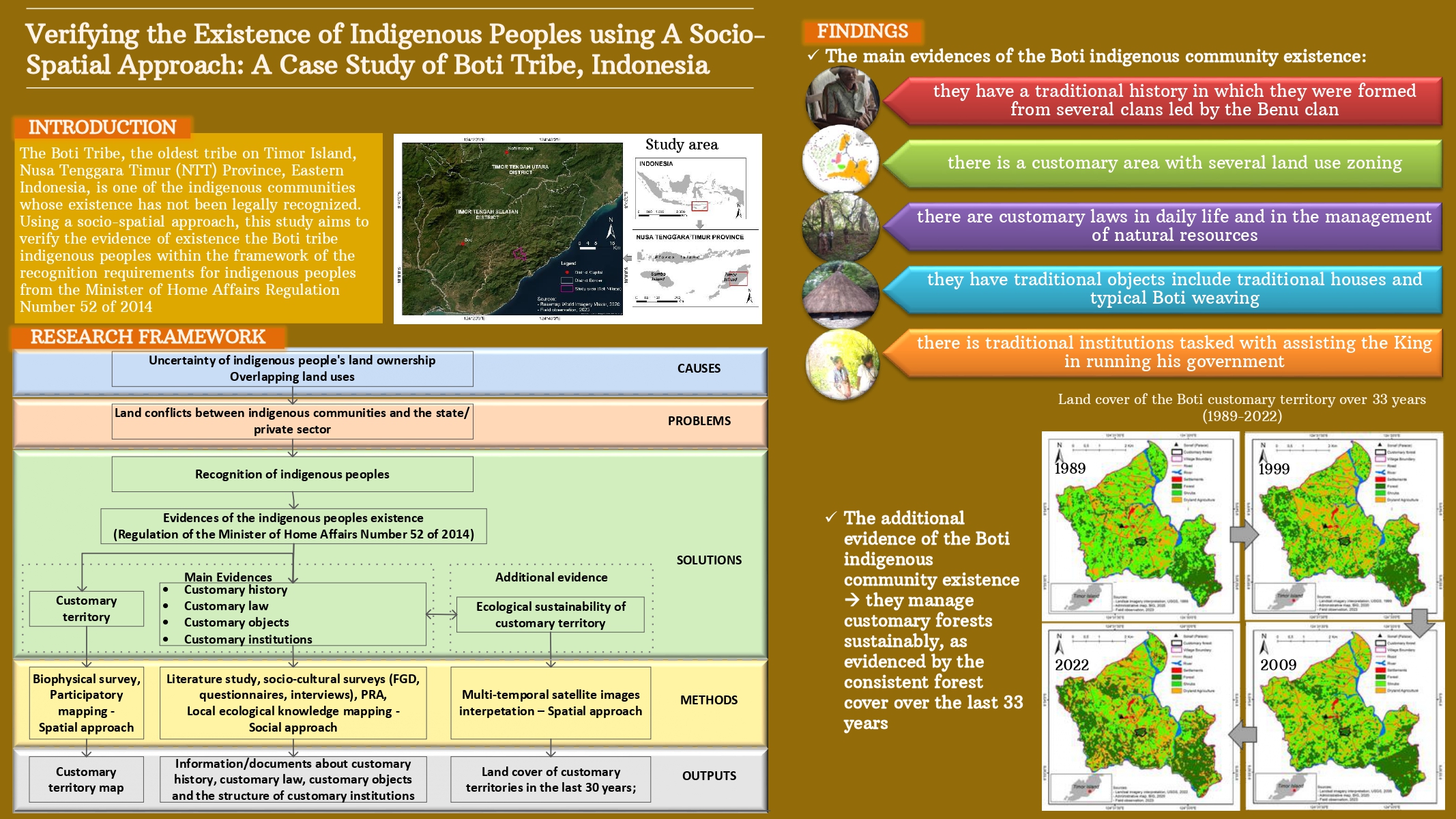Land Rights of Community Forest Plantation Policy: Analysis from an Institutional Perspective
Abstract
This study aimed to describe the land rights of bussiness permit for timber utilization from community forest
plantation (IUPHHK-HTR) in Indonesia and to predict its effectiveness based on property rights theory related
to target group characteristics. Field survey was conducted in November 2008 to April 2009 in Riau and South
Kalimantan Provinces. The results showed that from the property rights theory perspective, the land rights for
HTR could be categorized as lease or management rights consisted of rights to exclude, to manage, to use, and
to access, without rights to transfer and to bequeath. This suggests that the mechanism of transfer of rights from the government to the holder of IUPHHK-HTR as a temporary transfer of rights. As a result, the government needs to regulate a rigid and detailed obligation for IUPHHK-HTR holders that may not be fulfilled by the farmers. The granting of permits for a long period (up to 95 years) is predicted to lose the meanings, caused of the prohibition on inheritance of the permits. From these findings it is predicted to reduce the interest of farmers to invest in the HTR.






